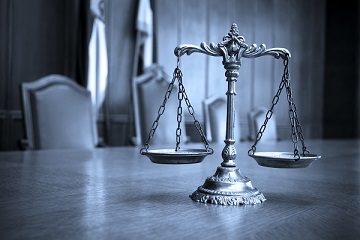Student Loan Debt Relief Attorney Connecticut

Unfortunately, even though it is technically possible, student debt is seldom discharged in Chapter 7 and Chapter 13 bankruptcy. When it feels like you are out of options and out of money, The Law Offices of Ronald I. Chorches are there to provide relief.
When you can no longer afford your monthly student loan obligations or have your wages garnished to make up for delinquent payments, you may wonder how you will ever get your debt under control. Many people turn to bankruptcy as a possibility, thinking they will be able to liquefy loans or reduce them to a manageable payment.
Managing Student Loan Debts
When bankruptcy is not an option, there are other alternatives to student debt relief. Solutions range from loan restructuring to forgiveness programs, both of which our skilled and experienced lawyers can discuss with you. In a free case evaluation, we will analyze your scenario and offer a candid opinion of the most effective and affordable way to eliminate student loans.
If you simply need more time to get on your feet financially, you may be able to suspend your student loan obligations while pursuing a Chapter 13 bankruptcy.
Common Assumptions
Some people assume incorrectly that you can discharge any debt you have in bankruptcy. Others strongly believe that student loan debt is exempt and can never be discharged, even with a successful bankruptcy filing for other types of debt. Which is true?
The reality is somewhere in the middle. One study did find that most people don’t even try. Only 0.1 percent of those who file and who also have student loans attempt to have them discharged. However, of those, a full 40 percent saw at least a portion of the debt erased.
Can You Discharge Student Loan Debt in Bankruptcy?
Declaring bankruptcy for student loans is possible, but it can be hard to do, and it won’t work in every case.
What you need to essentially prove is, that the loans are a hardship. It has to be proven that you can’t live a healthy, normal life because of the loan debt. Moreover, you absolutely can’t pay them back. Three things that courts look for include:
- The student tried in good faith to pay off what was owed, but could not do it
- Being forced to make those payments is not just difficult, but means the person can’t keep up a minimum standard of living. This doesn’t just mean you don’t have disposable income for things you want, but means you can’t pay for necessities.
- The person is not likely to see a shift in his or her financial situation. If you’re just between jobs, that may not be good enough, for example, but you could make this claim if a disability means you’ll never work again
As noted, this process can be highly complex. It’s important to know know exactly what you’ll have to show the court and what legal steps are required.
Understanding Your Options
In 99.9 percent of cases, student loans cannot be feasibly discharged under bankruptcy. However, under rare circumstances, you may be able to show a substantial inability to repay. Furthermore, you may be able to demonstrate the unlikelihood that you will ever be able to repay. Whenever possible, our attorneys can help you prove you meet the following criteria to eliminate loans.
- Repaying student debt would make it impossible for you to maintain a minimal standard of living
- Continuing to make payments would cause financial hardship for a significant portion of the repayment period
- Good faith efforts towards repayment were made before filing for bankruptcy
If your loans are from a for-profit trade school, in certain situations, a judge may discharge loans if the institution broke a contract or engaged in deceptive practices.
Get In Touch With Us
Regardless of the obstacles you face or the complexity of your case, our law firm is there to help. Reach out to us by calling 860-563-3955 or using our online free bankruptcy consultation form.
